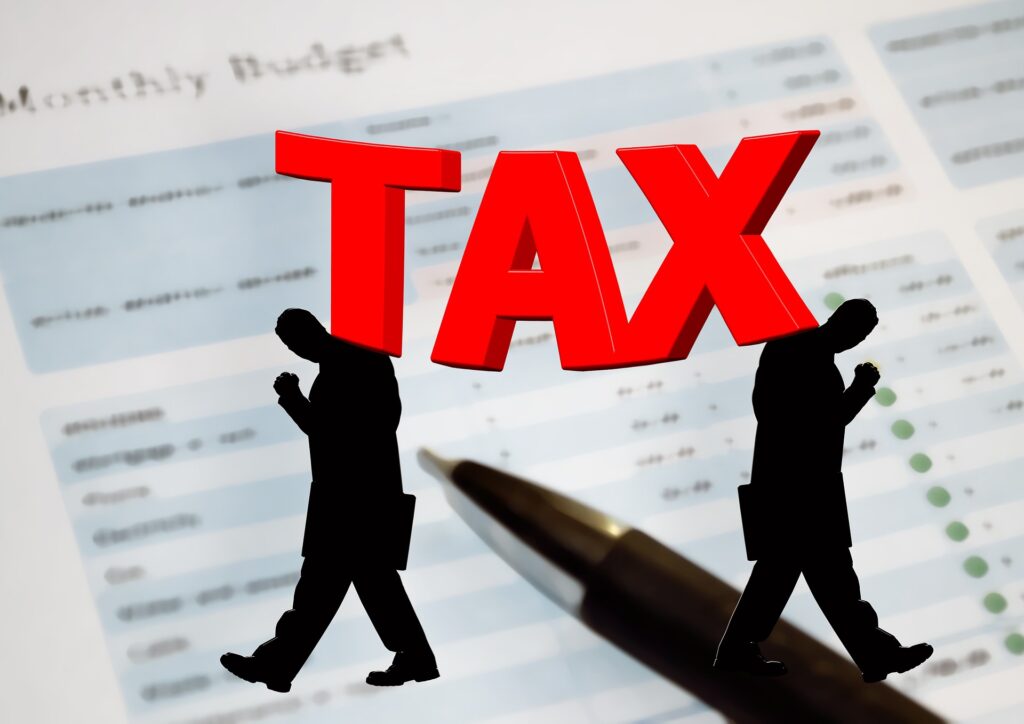Trust Fund Recovery Penalty
Business owners who have payroll employees are responsible for withholding taxes from their paychecks and placing them in a trust fund before making quarterly payments to the IRS. Trust fund taxes include the combination of withheld Social Security taxes and Medicare taxes, as well as income taxes that are owed to the Internal Revenue Service. As a business owner, even if you do your best to manage your finances and stay on top of tax payments, it is possible for things to slip through the cracks and to miss out on some of the required tax payments you may owe. Even if it is an accident when a company fails to pay the employer’s share of employment taxes, they will still be held responsible for the consequences of failing to pay trust fund taxes which can involve the additional fine of the Trust Fund Recovery Penalty.
Key Takeaways:
- Company owners or employers are responsible for withholding trust fund taxes from their employee’s paychecks and making quarterly installments to the IRS.
- Trust fund taxes include the combination of withheld Social Security taxes and Medicare taxes, as well as income taxes.
- The Trust Fund Recovery Penalty can be issued by the IRS when a corporation fails to file tax returns and pay ITS owed trust fund taxes.
- The responsible person involving a Trust Fund Recovery Penalty is generally the person in the company who the IRS confirms has the role of overseeing finances, payroll, and the hiring and firing process.
- The Trust Fund Recovery Penalty is equal to the unpaid tax balance owed for trust fund taxes, including income taxes and FICA taxes.
- The employment taxes withheld from an employee’s paycheck include federal income taxes and FICA taxes, which are a combination of Social Security taxes and Medicare taxes.
- The IRS can issue a bank account levy, wage garnishment, or federal tax lien to collect on unpaid trust fund taxes.
- If you are eligible to settle with the IRS regarding the TFRP, you can apply for an installment agreement or an Offer in Compromise.
What is a Trust Fund Recovery Penalty?
When a corporation has unpaid Form 941 liability (Employer’s Quarterly Federal Tax Return), the IRS could affirm the Trust Fund Recovery Penalty (“TFRP”) against the shareholders, directors, officers, owners, or employees of a company. By taking this action, the IRS asserts the corporation’s TFRP liability against the people that run the business and will collect this liability from their assets.
Compared to other types of IRS fines and penalties that can be added to the total tax liability owed for that tax year, the Trust Fund Recovery Penalty does more than increasing the tax balance due. This penalty has the ability to assign responsibility to an individual or group of people who “willfully” failed to pay what was owed in taxes. This gives the Internal Revenue Service a direct avenue to explore when it comes time for them to issue a revenue officer to investigate the unpaid sum and collect upon what is owed.
The Trust Fund Recovery Penalty is one of the most serious fines that can be asserted by the IRS, and if you are found to be the responsible person for paying trust fund taxes, the IRS will not hesitate to come for your personal assets as a means of collecting what is owed in tax debt. For this reason, it is in a company’s best interest to withhold the correct amount from their employee’s wages and complete their timely payments on payroll taxes.
How do employment taxes work?
As a wage employee who earns payroll, you have the luxury of leaving the organization of employment taxes to your employer. Your employer is responsible for withholding income taxes, Social Security taxes, and Medicare taxes from your pay instead of paying you the entire amount earned. These withheld funds are called trust fund taxes because they are then kept in a trust fund where they will reside until it is time for the employer to pay employment taxes and make a Federal Tax Deposit to the Treasury.
Deducting the correct amount from employees’ paychecks is the best way to avoid problems in the future. By consistently withdrawing money from wages and placing the appropriate percentage in a trust fund, employers can maintain a regular quarterly schedule of paying the IRS. This ensures that all parties are up to date on their tax payments and helps avoid the issuing of a Trust Fund Recovery Penalty when trust fund taxes go unpaid.
The taxes withheld from a wage employee’s paycheck contribute to trust fund taxes:
Federal Income Taxes
In the United States, there are varying tax laws that are imposed by federal, state, and sometimes local governments. The Internal Revenue Code describes the different federal income tax rules that depend on your income level. There are seven marginal tax brackets at the federal level, and the higher your income level, the larger percentage of your income you will owe in federal taxes.
FICA Taxes
FICA stands for Federal Insurance Contributions Act and is often referred to as payroll taxes. Withheld FICA taxes include a 6.2% Social Security tax and 1.45% Medicare tax on all wage earnings that must be paid to the IRS. FICA taxes should be withheld from an employee’s paycheck automatically and placed in a trust fund before being sent to the appropriate government entity to which it is owed.

Who is subject to the Trust Fund Recovery Penalty?
In determining whether to assert the Trust Fund Recovery Penalty against an individual, the IRS looks at various factors involving the party’s responsibility and willfulness to pay employment taxes. If you are being investigated regarding a Trust Fund Recovery Penalty, there are ways to contest with the appeals office the process if you can prove that you were not the responsible party or did not willfully fail to make tax payments.
A responsible person is an individual or group of people who have the duty of directing the collection, accounting, and payment of trust fund taxes. Examples of the qualities of a responsible person include, but are not limited to, check signing authority, the position held within the company, the percentage of ownership, the amount of control one can exercise over decision-making authority, who signed the tax returns, and who hired and fired employees. In general, the person responsible for collecting or paying taxes within a business may be found liable and held responsible for the payment of trust fund taxes.
The IRS understands that not all businesses are run the same, and the individuals responsible for certain financial tasks may have a different job title to that of someone who completes the same roles in another company. To accommodate the varying business structures of companies that may be involved with a Trust Fund Recovery Penalty, the IRS conducts a highly factual analysis that reviews all of the duties and responsibilities of employees across different roles in the company.
The IRS also looks at how willing the responsible person is to pay trust fund taxes. To be asserted the TFRP, the responsible party must have both been aware of the outstanding taxes and either intentionally disregarded the responsibility or willfully fails to pay the responsibility due to ignorance. Whether there was evil intent or if it was an accident that trust fund taxes weren’t paid, if the IRS revenue officer determines that the responsible person should have been aware of the tax liability but still didn’t pay, they may be subject to the Trust Fund Recovery Penalty.
These factors are used to determine whether the Trust fund recover penalty should be asserted against the persons involved in the operation of the corporation. By asserting the TFRP against individuals, the IRS expands its collection potential to the people that operate the business. The Trust Fund Recovery Penalty consists of all of the income tax that was withheld from employees’ wages and the employee’s share of FICA and Medicare. The Trust Fund portion of the Form 941 liability is typically around $.70 of every dollar but does not include penalties or interest.
How much is the Trust Fund Recovery Penalty?
If an employer knowingly withholds FICA or income taxes that are owed to the Internal Revenue Service, they may be subject to a trust fund recovery penalty (TFRP). A Trust Fund Recovery Penalty is a hefty fine that is equal to the unpaid balance of trust fund taxes withheld. This sum is calculated based on both the unpaid income taxes withheld as well as the employee’s portion of withheld FICA taxes.
For example, if a company misuses $10,000 of withheld taxes that were supposed to be paid to the IRS, the company would owe the $10,000 in tax liability as well as an additional $10,000 penalty. Therefore, they would owe the IRS a total of $20,000.
Whether the willful failure of paying trust fund taxes is through negligence or intentionally disregarded, most of the time when people fail to pay their tax liability, it is due to financial hardship. Upon the breakdown of how Trust Fund Recovery Penalties are calculated, it is clear to see that the fine can double the tax debt of the responsible person. The financial burden of receiving a TFRP can be significant, so it is best to pay your employment taxes on time. In the case that you do receive a Trust Fund Recovery Penalty, there are strategies you can utilize to communicate with an appeals office and work to negotiate with revenue officers to find a way to manage your tax debt.
What happens when you have unpaid trust fund taxes?
When a company is being investigated for the accumulation of unpaid taxes that have been withheld from their employees, an IRS revenue officer will evaluate the potentially responsible person to be held personally liable for the tax issue. During the investigation process, corporate officers will request thorough financial documentation and information from the company to determine which potentially responsible persons have the decision-making authority to withhold and pay employment taxes. Agencies involved in determining who will be held responsible will observe who in the company has access to the money, who pays the bills, and where the money goes.
During this process, the IRS may summon the company owner or person they think is responsible for the missing tax payments to complete a Form 4180 Interview to assess their potential role in the arisen tax issues. The interview investigates the extent of the individual’s role and responsibilities in the company to determine if they should be held responsible for the willful failure of paying trust fund taxes. At this time, the IRS revenue officer will determine if they believe the individual exercised independent judgment in regard to withholding taxes or if they were merely following the orders as directed by their boss or manager to determine their personal liability in the Trust Fund Recovery Penalty investigation.

IRS Collection Efforts
If the IRS determines that you are the responsible party for paying trust fund taxes but they have yet to receive payment, they will issue a letter stating their intention to assess the Trust Fund Recovery Penalty against you. The responsible person has 60 days from the date the letter was sent to appeal the TFRP proposal, but if you fail to respond to the letter, you will receive a Notice and Demand for Payment. Once the TFRP has been formally issued against you, the IRS can file a federal tax lien or issue a bank levy to take collection action.
When someone owes outstanding tax debt to the government, IRS collection efforts can include levies or garnishments on wages, levies on bank accounts, and the seizure of assets to help ensure the tax debt will be paid. The corporation does not protect individuals should the IRS choose to assert the Trust Fund Recovery Penalty against them.
Bank Account Levies
A bank account levy occurs when a creditor contacts your bank to withdraw funds from your account if you have been failing to pay your tax debt. With a levy on your bank account, you will be unable to withdraw money from your account until your tax debt is paid. You may not be notified when your bank account has been levied.
Most creditors must win a money judgment in court to issue a bank account levy, but certain institutions like the Internal Revenue Service can issue a levy without requiring a court order.
Wage Garnishments
Wage garnishment occurs when an employer is required by a court order to withhold an individual’s earnings from their paychecks to be paid directly to the government. An individual’s wages may be garnished when they have outstanding tax debt or if they owe child support payments. While a wage garnishment sends payments directly from your paycheck to the institution to which you owe money, if this tax collection process causes significant financial hardship that prevents you from being able to afford your monthly expenses, you may be eligible for another form of the IRS forgiveness program.
Federal Tax Lien
When a debtor fails to pay what they owe in federal income taxes, the IRS can place a federal tax lien on your property which provides the government with a legal claim to your personal assets. While a lien is not the actual seizure of your property, it does provide the government insurance that they have the legal rights to claim your property if you continue to neglect to pay your tax debt.

Can you settle Trust Fund Recovery Penalties?
Similar to other tax liabilities you may accumulate, there are options when it comes to managing your tax debt and paying what you owe to the IRS. If the IRS assesses a company’s tax liability and determines that the potentially responsible person is necessarily liable, the best method to remove a Trust Fund Recovery Penalty is to pay what is owed in trust fund taxes every quarter to avoid the penalty being issued. If a company is unable to pay the full amount owed in trust fund taxes or once a TFRP has been issued, you can consult a tax professional to help you settle with the IRS.
Installment Agreement
When a company lacks sufficient available funds to pay what they owe in trust fund taxes, it can sometimes be eligible to reduce its tax debt by negotiating a payment plan with the IRS. In this situation, the company pays back its debt through monthly installment agreements that are manageable without causing additional financial hardship.
Offer In Compromise
If a company cannot afford to pay what they owe in tax liability, it can sometimes settle with the Internal Revenue Service and agree to an Offer in Compromise in which the party owes less than its total tax liability. This settlement option is an excellent form of tax relief as it lowers the total tax debt that must be paid to a sum that is more manageable to pay without instilling economic struggles.
It can be challenging to navigate the legal nuances of the internal revenue code when facing the consequences of unpaid taxes, so if you are a business owner who is a responsible person for paying trust fund taxes and you are issued a Trust Fund Recovery Penalty, consulting tax professionals like those at Ideal Tax can help you issue an appeal and restore your good standing with the IRS. If you are facing a Trust Fund Recovery Penalty, we can help a company prepare a strategy and defense against this type of collection. Call us if you are experiencing this issue and allow us to help. We’re offering a free tax consultation.
Ideal Tax Solution Representation




